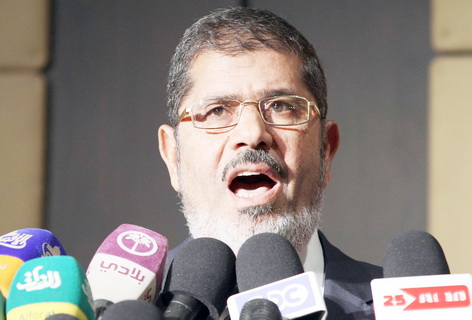The city’s first refugee film festival has proven an unprecedented success, with record crowds packing downtown’s Rawabet Theater each evening in spite of the cramped, hot venue.
With each day’s program including several hours of screenings, the short films on offer have proven a relief for those wanting to experience the festival with a low tolerance for a lack of air conditioning in Cairo’s summer heat.
The first day of the festival kicked off with a screening of “A Giraffe in the Rain, an animated short by Belgian director Pascale Hecquet. First released in 2008, this clever film has been shown at various refugee and environment-related festivals around the world.
The film tells the story of a giraffe struggling to locate water in the dry desert where most of the local water supply has been diverted to the luxurious swimming pool of a rich local lion.
Desperate for water, the giraffe decides to tap into the lion’s water supply. Before she can carry out her plan, the lion drives up in his limousine, picks up the giraffe and dumps her at the airport where she is given a one-way ticket to elsewhere.
As a refugee in a new land with plentiful water, the giraffe stands out among dogs and struggles against arbitrary regulations, discrimination and the stigma of being different.
Though animated and amusing in its own quirky way, the 12-minute film is ultimately a powerful stand against the injustices forced upon refugees and the travesty of unfair water distribution, which resonates not only in Africa but around the world from Palestine to India to Latin America.
Wednesday’s schedule included a screening of “Mujahjeheen, a short film directed by local filmmakers Jasmin Baoumy, Mariam Mikiwi and Sarah Wali.
The 10-minute film highlights the daily struggles of a Sudanese refugee family living in Cairo, and the challenges they face adapting to an unfamiliar, often hostile city.
Though they speak Arabic and have spent seven years as refugees in Cairo after fleeing war and discrimination in Sudan, Hussein Abdel Hameed, his wife Hanan, and their five children have faced unending difficulty adapting to life in Cairo and building a future for themselves after what seems like a lifetime of dislocation and struggle.
The film gives the audience a window into the discrimination and injustice faced by the Abdel Hameed family and others like them, and effectively portrays the irony of the refugee experience in Cairo – a city woefully unequipped to provide for its own people, much less incoming refugees.
Most importantly, the film provides context for the pervasive racism that Cairenes hold towards Sudanese and other African refugees, a situation which exacerbates the already difficult experience of these people and prevents Sudanese from adapting or investing in Egypt over the long term.
Other local filmmakers would do well to follow in the footsteps of Baoumy, Mikiwi and Wali in revealing the obstacles faced by Cairo’s numerous refugee populations, in the hopes that telling their stories could raise international awareness about their plight.
If the festival becomes an annual event, which, judging by this year’s success it should, I might suggest changing the venue to one with air conditioning and more seats.
On the other hand, seeing films about refugees experiencing deprived conditions and atrocious treatment in a less-than-comfortable setting might just have added something to the overall experience.
The Cairo Refugee Film Festival continues through Saturday at the Rawabet Theater, Hussein El-Meamar St., Downtown Cairo. For a schedule of screenings, visit www.cairorefugeefilmfestival.blogspot.com.

